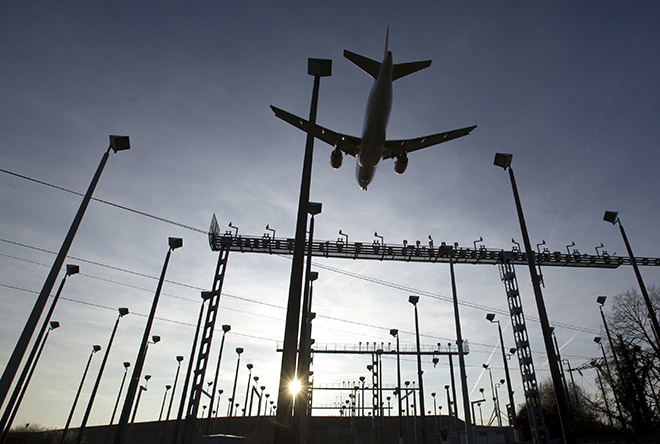
Analysts expect Malaysia’s aviation sector to perform well this year, with record earnings and returns achieved, backed by various factors.
KUCHING: Analysts expect Malaysia’s aviation sector to perform well this year, with record earnings and returns achieved, backed by various factors.
Maybank Investment Bank Bhd’s research arm (Maybank IB Research) in a recent report, highlighted that persistently low fuel prices will support the strong sector performance into 2016.
In addition, it believed that a healthier yield outlook on strong demand, the cost benefits of younger average fleet age, and higher aircraft utilisation rates will favourably boost the bottom line.
“We expect sustained earnings growth into 2017, with sector returns on equity (ROE) rising to just below mid-teen levels, which is well above current weighted average cost of capital (WACC) and hurdle rates,” it added.
However, it pointed out that the all-around strong sector earnings growth does not necessarily mean that all airline stocks will gain traction, as the market discerns other overriding factors.
“Country macroeconomics, foreign exchange outlook, and fuel hedge ratios are what investors look for in order to derive their investment decisions.
“Airlines domiciled in countries with strong GDP growth and those with no/little fuel hedges are likely to be favoured by investors,” it noted.
Nevertheless, it opined, Malaysia’s aviation sector will rise again in 2016.
“The past two years (2014 to 2015) have been the darkest for Malaysia due to the triple disasters of 2014 that has withered consumer sentiment and warded off tourists.
“This coupled with the GST implementation in April 2015, domestic political uncertainties, and a weak ringgit has caused Malaysian based aviation companies to be the worst performing in the region. In every bad situation, however, there is an element of good,” Maybank IB Research commented.
“All the possible bad things that could have happened to Malaysian carriers has materialised.
“This confluence of the perfect storm explains why Malaysia has been the worst performing country in Asia.
“Investors should look to 2016 with optimism; GDP is firmly in growth territory, the foreign exchange outlook is stable, and domestic political disturbances have abated.
“Furthermore, the stocks are trading at the cheapest valuations in history, even lower than during the global financial crisis (GFC). This should limit the downside risk potential, in our view,” Maybank IB Research opined.
It also noted that Malaysia Airlines (MAS), which for years has been the industry grievance provider is now leading the charge for reforms.
“It has scaled down operations and cut roughly 20 to 25 per cent of its capacity in August 2015, and will scale down a further five to seven per cent in 2016. This will fundamentally skew the supply-demand dynamics in favour of the airlines with better load factors and yields,” it added.
Aside from that, Maybank IB Research believe that demand will outstrip supply for the aviation sector.
“We forecast traffic growth of 6.3 per cent in 2016. This is based on our house GDP growth forecast of 4.5 per cent, times the historical air traffic growth-to-GDP multiplier of 1.4-folds.
“However, we estimate seat capacity to grow by only two per cent as MAS is cutting services and reducing frequencies.
“The demand-supply mismatch should be supportive for load and yield growth, of which we have witnessed in AirAsia Bhd and AirAsia X Bhd’s third quarter of 2015 (3Q15) results.
“The total fleet size will grow by one aircraft in 2016 to a total of 240 aircraft. This is in stark contrast to the historical norm of 12 to 18 aircraft per annum.
“MAS is rationalising its fleet and removing excess aircraft, AirAsia is committed to take three aircraft only, whilst Malindo has yet to firm up its delivery schedule.
“We are not concerned with the new start-ups (which are Rayani Air and FlyMojo) as they are niche focused, and we question their ability to survive,” it opined.
All in, Maybank IB Research pegged an ‘overweight’ view on Malaysia’s aviation sector.
